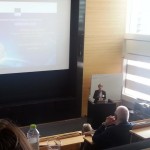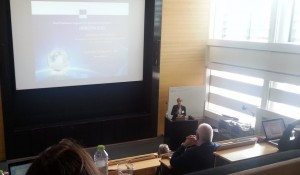Anne Nielsen: “Co-creation is central to Horizon 2020 success on societal challenge 6”

Researchers deal with a lot of questions conceptualizing their proposals for H2020. Some of them may be: how to solve a real-life problem, how to find a social need to be covered by our project and how to implement it. Some of these questions has been addressed at an event organized by the Ministry of Higher Education and Science of Denmark.
The main speaker, Anne Nielsen, Policy Officer at the Directorate-General for Research and Innovation, has underlined the importance of “co-creation” to write a successful proposal. Co-creation is connected with the Responsible Research and Innovation approach that encourages a more active relationship with society, and private institutions.
Proposals must include the opinions, needs, and demands provided by the community citizens and business.
Indeed, the current work program tackles four mayor challenges. One of them is the economic recovery “always thinking on inclusive and sustainable long-terms growth proposals with focus on co-creation engaging citizens, users, academia, social partners, public authorities, businesses, the creative sector, and social entrepreneurs”, Nielsen explained.

The other three main topics address problems like “reversing inequalities in Europe, understanding dynamic changes and geopolitical contexts that the EU operates in, and understanding better the Europe´s cultural and social diversity and of its past”. So, researchers must bear in mind all this factors when writing proposals.
Some piece of advice
After her intervention, Morten Kallestrup, Associate Professor at University of Southern Denmark, has talked about his experiences as a proposal evaluator. He has stressed the advices related to two aspects: excellence and impact.
To improve the proposal excellence, Kallestrup advice is to focus on “the clarity and pertinences of the objectives, and the credibility of the proposed approach”. But also, “To extent that the proposed work is ambitious, has innovation potential and it is beyond the state of the art”.
In terms of impact is crucial “to address the expected impacts listed in the work programme and any other with environmental and socially important impact”. Morten Kallestrup, has explained also the importance given by EU Commission to the “effectiveness of the proposed measures to exploit and disseminate the project results, including to communicate the project and to manage research data where relevant”.
The final presentation has dealt with the role of a proposal coordinator and the relevance of the social impact approach.
Author:
Carlos Fernández-Alameda
Science Journalist
More info: research.ucc(at)unir.net
